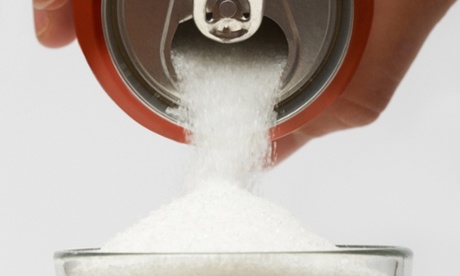A controversial study by high-profile Sydney scientists challenged the role of sugar in Australia’s obesity epidemic

Two high-profile Sydney University scientists have been cleared of misconduct over a controversial research paper challenging the idea that sugar is a unique contributor to Australia’s obesity epidemic.
But an independent investigator did find some problems with the key argument of Jennie Brand-Miller and Alan Barclay that Australian sugar consumption has declined over the past three decades.
After a six-month investigation by Robert Clark, chair of energy strategy and policy at the University of New South Wales, the two nutritionists have been asked to write another paper “in consultation with the faculty, that specifically addresses and clarifies the key factual issues examined in this inquiry”.
Clark found that the allegations of sugar’s decline in consumption were unsubstantiated, but said the saga highlighted a number of “lessons learned”.
Barclay and Brand-Miller, who is known as “GI Jennie” for her work pioneering the glycaemic index, faced what they called a “trial by internet” over their 2011 paper, the Australian Paradox, which argued that Australia’s obesity rate had sharply increased over the past three decades despite a “substantial and consistent decline” in refined sugar consumption per person.
The study has formed part of the food industry’s argument against public health initiatives aimed at curbing sugar intake, such as a sugar tax or ban on extra-large soft drinks.
An ABC radio investigation in February highlighted several alleged errors with the paper raised by the economist and anti-sugar crusader, Rory Robertson.
Among his criticisms was that the surveys relied upon by Brand-Miller and Barclay to show a decline in sugar consumption were incomplete and has been abandoned by the Australian Bureau of Statistics. In a strident online campaign, Robertson also claimed that the two renowned nutritionists had close links with the sugar industry, and that Barclay in particular had taken money from Coca-Cola to present his research.
Clark found that the data showing that Australian sugar consumption had declined over the past three decades was discontinued by the ABS in 1999 due to “an emerging reliability issue [that] could presumably affect the reliability of data points in years approaching this cessation point”.
But nonetheless, he said, the long-term trend did show a persistent decline, and it had been reasonable for the two nutritionists to rely on the data, which they had sourced from the United Nations’ Food and Agriculture Organisation.
Without wading into the raging debate about the role of sugar in causing obesity, Clark said that the paper should not be seen as”exonerating sugar per se”. He speculated that while national intake of the sweetener appeared to have declined, its consumption among those sections of the community hardest hit by obesity may well have gone up.
He found that neither nutritionist had a conflict of interest, despite taking money from the food industry for some of their work, though Barclay’s acceptance of payment from Coca-Cola to give a presentation about sugar “might not have demonstrated good judgment”.
Though the Australia Paradox contained “errors of a simple arithmetic nature”, Clark said it had been anonymously peer-reviewed and he could see no evidence of “any wilful attempt … to act deceptively to misrepresent the science”.
Brand-Miller and Barclay said they welcomed the results of the inquiry. “This is a win for science and a loss for those who reject the scientific process,” they said in a statement.
They said Clark’s report showed them to be “open, honest and well-intentioned academics” and vindicated their findings that sugar consumption was in decline.
“[We] are preparing a paper for a major journal that updates the Australian Paradox, and specifically addresses the matters raised in the inquiry so that the misunderstandings of the original paper are avoided,” the scientists said.
Robertson, however, remained defiant, saying the outcome of the inquiry was “a big, fat fail” and “shredded the credibility” of the paper.
“…The investigator has recommended that the authors be required to rewrite … [their paper] under proper supervision,” he said.
“I encourage public scrutiny of the paper, I encourage anyone who’s interested to carefully read the investigator’s report,” he said.
“There is no way any reasonable person can look at the data and conclude, as the authors did, that there is an inverse relationship between sugar consumption and obesity.”
While Barclay and Brand-Miller agree refined sugars are a key source of unwanted kilojoules, they have argued that “simplistic advice like ‘quit sugar’ may inadvertently increase the intake of refined starches and maltodextrins, high glycaemic index carbohydrates, energy, saturated fat and salt, which could in fact have adverse health consequences”.
